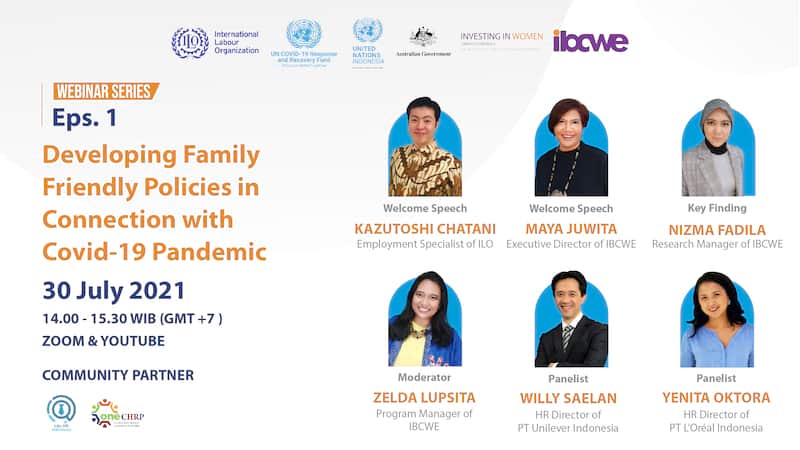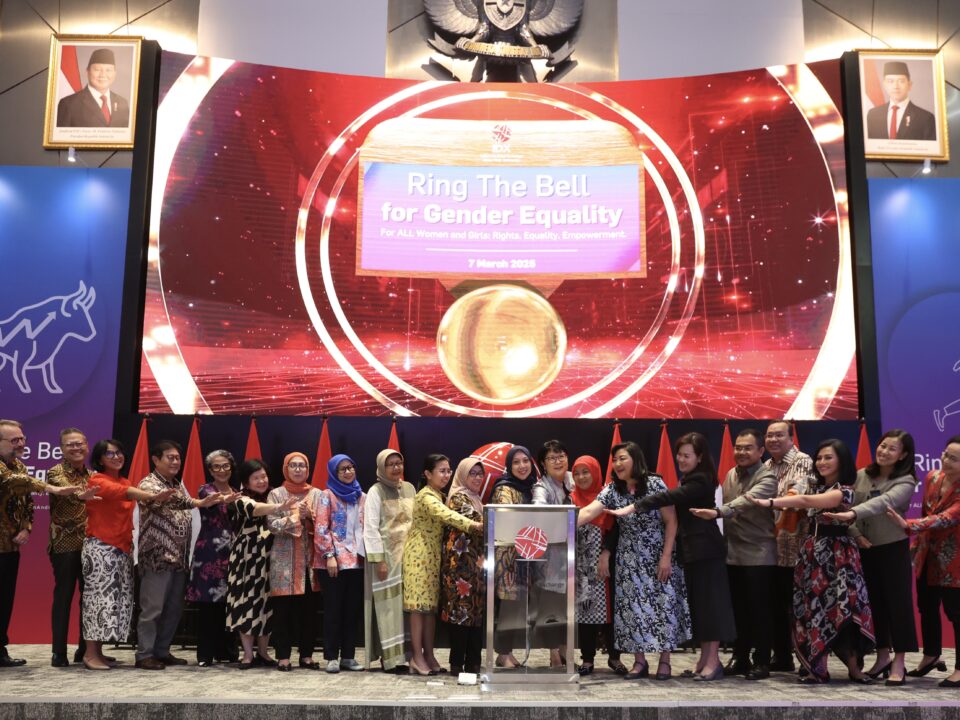
Interdependency Protection of Children’s Rights and Women’s Rights in Business Activities
December 24, 2023
Family Friendly Practices and Policies Regarding the Covid-19 Pandemic of PT Unilever Indonesia and PT L’Oréal Indonesia
December 24, 2023The Covid-19 pandemic is heavily affecting the labour market and economy, including global supply chains leading to widespread disruption. With many businesses struggling to survive, many workers have had to lose jobs and income or earn an average income.
Governments and companies have an important role to play in providing the time, information, services and resources needed by workers, especially working parents, to help them overcome this crisis. Examples include job and income protection, paid leave to care for their physical and mental health and their family members, flexible work arrangements, access to quality emergency child care. Companies can also collect and report sex-disaggregated data on how the policy affects each gender.
Companies should not ignore major transitions in employees’ lives such as when they just become new parents or are caring for their sick child, especially when work and personal time are becoming more integrated as it is today. Offering family-friendly benefits and policies is a great start to attracting and retaining the best talent. The next step, the company can carry out a child care service program at the workplace.
In times like these, working parents struggle to find safe and comfortable child care. In fact, only 9 percent of companies nationwide that offer child services in the workplace to employees. According to research published in the Journal of Managerial Psychology, employee performance was higher and absenteeism was lower among those who had on-site childcare, and on-site childcare benefits are not just limited to this, it is essentially the new work-life balance.1
During this pandemic, the Investing in Women Survey revealed that more than a third of workers (38 percent) reported their mental well-being had worsened and 23 percent reported their physical well-being had worsened. Workers were associated with this negative impact on anxiety about situations, problems and families, and burnout due to increased household burdens.2
In addition, most women (90 percent) and men (81 percent) reported having greater responsibilities at home for housework and/or taking care of children and other relatives. However, four out of five employees report that Covid-19 has also brought about positive changes in their work lives. Access to flexible work arrangements was reported by 54 percent of women and 49 percent of men as the most popular positive change.
Due to support gender in the workplace, the United Nations (UN) in collaboration with the Ministry of Manpower, Indonesian Employers (APINDO), Indonesian Business Coalition for Women’s Empowerment (IBCWE), Gerakan Nasional Indonesia Kompeten (GNIK), other like-minded organizations, launched a webinar series program .
In the first episode, we will discuss the Development of Family Friendly Policies Regarding the Covid-19 Pandemic, including key findings of the Covid-19 pandemic, introducing findings on the benefits of having family friendly policies in the workplace, and sharing experiences with private companies that have implemented policies. family friendly at work on July 30, 2021, 14.00-15.30 WIB.
Interested in participating in this activity? Register yourself at this link
This event is a part of webinar series as an initiative implemented by a UN project “Employment and Livelihood: An Inclusive Approach to Economic Empowerment of Women & Vulnerable Populations in Indonesia”. The project is funded by the UN Multi-Partner Trust Funds (UN MPTF). Four UN agencies, International Labour Organization (ILO), UN Development Programme (UNDP), Joint United Nations Programme on HIV/AIDS (UNAIDS), and UN Refugee Agency (UNHCR) implement the project.
28 July 2021
Fellicca P. Madiadipura
Source:
1 10 Reasons Why All Companies Should Have On-Site Childcare Facility In 2019! (allthingstalent.org)
2 Impact of COVID-19 on private sector employees in Indonesia – update, Investing Women’s Survey.





